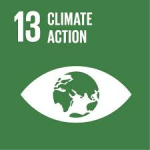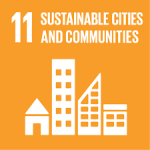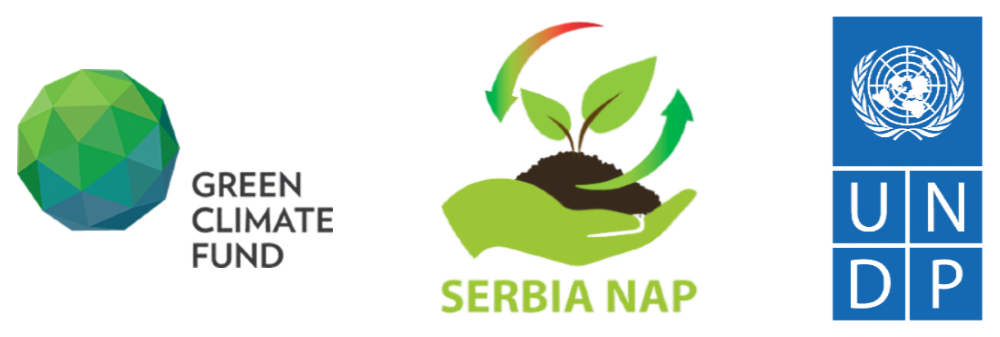Open Data Challenge
I INTRODUCTION
Climate Smart Urban Development (CSUD) is a project implemented by the Ministry of Environmental Protection and the United Nations Development Programme (UNDP), with the support of the Global Environment Facility (GEF). The project launched the Open Data Challenge, inviting local governments to submit their proposals for innovative ideas/solutions on how to improve management of climate change-related data at local level, offering user-friendly, quick and easy public access to these data.
Why we started this challenge
- Climate change is already affecting the environment, the economy and our way of living;
- There has been a notable increase in the occurrence of extreme weather events, losses and damages caused to crops, houses, property and lives;
- The rapid development of information and communication technologies (ICT), the increasing demand for information and new technologies encourage decision-makers to openly share information with citizens and other end-users globally;
- To improve the monitoring of climate change impact on local communities;
- To improve the availability and quality of data on greenhouse gas (GHG) emissions from different sectors and make the best use of this information, also for the purpose of creating new business opportunities;
- To enable transparent and effective local planning and decision-making, deliver municipal services in a more cost-effective, socially and environmentally friendly way, to ensure climate change resilient local development.
What is Open Data?
Open data is data that anyone can access, use and share. Open data refers to digital data that is available online, for free or at a marginal cost, for anyone to use and republish for any purpose, and in a format that can be readily processed and analysed by computers. Open data initiatives in many cases refer to the conversion of already publicly available data into formats that can be reused by various stakeholders. Open data in public institutions enables citizen engagement, serves as an investment-attraction tool and a building block for climate smart urban development.
What is innovation in data management?
- Development and application of data management ICT and software solutions (with the participation of the community and end-users);
- Involving citizens into the decision-making processes, planning and information management (e.g. ease access to information on community energy management);
- Contributing to solving social issues (gender equality, marginalized groups, unemployment etc.), to the reduction of GHG emissions, and to the creation of economic and environmental benefits for the community itself;
- Creating an enabling environment for green and climate smart investments.
II BACKGROUND INFORMATION ABOUT THE PROJECT AND THE OPEN DATA CHALLENGE
In early 2017, a five-year Climate Smart Urban Development Challenge (CSUD) project was launched by the Serbian Ministry of Environmental Protection and the United Nations Development Programme (UNDP), with the financial support of the Global Environmental Facility (GEF). This project is supported by numerous partners such as the EU Delegation to Serbia, the Government of the Kingdom of Sweden, the Swiss Government, as well as Serbia’s Innovation Fund and Standing Conference of Towns and Municipalities, as the national partners.
III NEXT STEPS – WHAT HAPPENS AFTER THE SELECTION AND PRESENTATION OF THE “BEST PROJECT IDEA” AWARD?
1. INCUBATION AND TESTING PHASE / From June to December 2018
In this phase the project applicants have six months at their disposal in the Climate Incubator, jointly managed by the UNDP and the Ministry of Environmental Protection, to turn their ideas into concrete projects that will contribute to data collection, analyses and management, opening data to the broader community and involving citizens in the work of the local government. In addition to this, a software application/local GHG inventory will be developed within the Climate Incubator, in cooperation with experts, to improve climate-change related data management. This software application will enable data interoperability between local and state agencies.
Incubator. The Incubator is a co-working space and a place where applicants can get information and support to develop their project ideas and concepts in further detail, take advantage of the services of experts and test the proposed solutions. These services are free of charge for the members of the award-winning local governments’ project teams. The incubator will also be organizing workshops and trainings to support the further development of project solution, and other similar events.
2. EVALUATION AND IMPLEMENTATION OF THE DATA MANAGEMENT SYSTEM / 2019
In early 2019, the Panel will assess which cities and municipalities have demonstrated the biggest progress and performance in turning their initial ideas into concrete projects and achieved the best results in launching measures and activities for the introduction and application of the open data management system.
The best towns and municipalities will get funding to implement the proposed projects with the use of the IT system for the management of climate change-related data.
Please note that the proposed concrete projects are expected to demonstrate that the project’s goal has been achieved, that the existing data sets and data management have been significantly improved, or that innovative ways have been devised for the use or increased availability of existing or future data; that they have contributed to the development of a local GHG inventory and that the final solution has brought benefits for the local community (end users), in particular women, youth and marginalized groups (incl. the number of socio-economic co-benefits, new investments and similar); that they have led to increased demand for quality data and to sustainability.
IV STATISTICS ON RECEIVED SUBMISSIONS
Fifteen submissions were received from across Serbia in response to the Open Data Challenge call for proposals. Innovative ideas for the use open data were submitted by 7 towns (Sremska Mitrovica, Novi Sad, Kragujevac, Novi Pazar, Kruševac, Kraljevo, Šabac) and 4 municipalities (Ćuprija, Sokobanja, Bujanovac, Krupanj), as well as the Zvezdara Municipality (map of Serbia with dots).
V AWARD-WINNING INNOVATIVE PROJECT IDEAS
CONTACT
Please fill out this form and we will respond as soon as possible.





